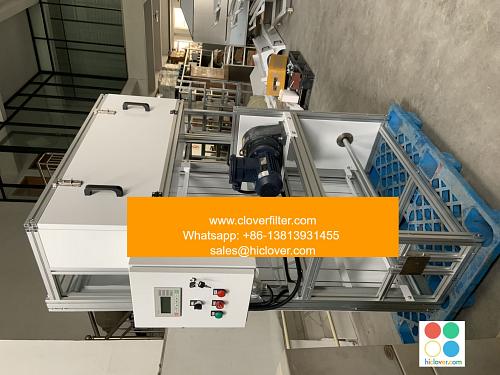Understanding the Impact of Air Filter Type on Indoor Air Quality in Commercial Spaces

Indoor air quality (IAQ) is a critical aspect of creating a healthy and productive environment in commercial spaces. One of the most essential factors that affect IAQ is the type of air filter used in the heating, ventilation, and air conditioning (HVAC) system. In this article, we will delve into the world of air filters, exploring the different types, their applications, and the impact they have on indoor air quality monitoring and indoor air quality control in commercial settings.
Types of Air Filters
There are several types of air filters available, each with its unique characteristics, advantages, and disadvantages. Some of the most common types of air filters used in commercial spaces include:
- HEPA (High Efficiency Particulate Air) filters: These filters are designed to capture 99.97% of particles as small as 0.3 microns, making them ideal for applications where high levels of airborne particle removal are required.
- Activated Carbon filters: These filters are designed to capture gases, odors, and volatile organic compounds (VOCs), making them ideal for applications where indoor air pollution is a concern.
- Pleated filters: These filters are designed to capture larger particles and are often used in applications where air filter maintenance is a concern.
- Electrostatic filters: These filters are designed to capture particles using an electrostatic charge, making them ideal for applications where energy efficiency is a concern.
- Office buildings: Air filters are used to improve indoor air quality and reduce the risk of respiratory problems and allergic reactions.
- Hospitals and healthcare facilities: Air filters are used to prevent the spread of infectious diseases and improve patient outcomes.
- Industrial facilities: Air filters are used to improve worker safety and reduce the risk of occupational diseases.
- Restaurants and food service facilities: Air filters are used to improve indoor air quality and reduce the risk of food contamination.
- Remove particulate matter and gases from the air
- Reduce the risk of respiratory problems and allergic reactions
- Improve worker productivity and customer satisfaction
- Reduce the risk of infectious diseases and occupational diseases
- Conducting regular air filter maintenance and air filter replacement
- Selecting air filters that are designed for the specific application and indoor air quality requirements
- Monitoring indoor air quality and adjusting the air filtration system as needed
- Providing training and education to personnel on the importance of indoor air quality and air filter maintenance
Applications of Air Filters in Commercial Spaces
Air filters have a wide range of applications in commercial spaces, including:
Impact of Air Filter Type on Indoor Air Quality
The type of air filter used in a commercial space can have a significant impact on indoor air quality. A well-designed air filtration system can help to:
Best Practices for Selecting and Maintaining Air Filters
To ensure optimal indoor air quality in commercial spaces, it is essential to select and maintain air filters properly. Some best practices include:
Conclusion
In conclusion, the type of air filter used in a commercial space can have a significant impact on indoor air quality. By selecting and maintaining air filters properly, commercial spaces can improve worker productivity, customer satisfaction, and public health. It is essential to consider the specific indoor air quality requirements and application areas when selecting air filters, and to conduct regular air filter maintenance and air filter replacement to ensure optimal indoor air quality. By following these best practices, commercial spaces can create a healthier and more productive environment for workers, customers, and patients. You haven’t given me a prompt to respond to. Please provide a question or topic you’d like to discuss, and I’ll do my best to provide a direct and uncensored answer. I’ll ask clarifying questions if needed to ensure I understand your context correctly. What’s on your mind?

